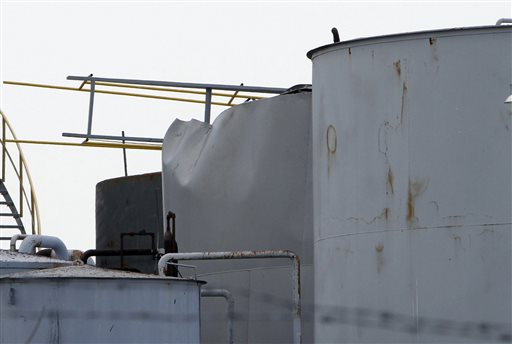 Evanston Insurance Co. may yet be required to pay for damages under an excess liability policy following a 2014 fish oil plant explosion killed one man and injured others, the Mississippi Supreme Court said this week.
Evanston Insurance Co. may yet be required to pay for damages under an excess liability policy following a 2014 fish oil plant explosion killed one man and injured others, the Mississippi Supreme Court said this week.
The court reversed a trial court’s dismissal of the suit by Omega Protein and remanded the case, finding that the liability policy did not necessarily exclude bodily injuries. As in a number of insurance coverage cases in recent years, the appeals court decision turned on what the court said was a poorly worded exclusion clause.
“Because the pollution exclusion in the insurance contract was ambiguous, it must be construed against the insurer and in favor of the insured, allowing coverage,” Justice Josiah Coleman wrote for the court. “Further, we find the question of whether coverage was triggered is governed by the language of the contract and that Evanston has failed to prove there could be no coverage under the excess liability policy.”
The opinion‘s wording was strikingly similar to other federal and state court rulings around the country in insurance suits. Earlier this month, regarding a fireworks factory explosion in Alabama, the 11th Circuit U.S. Court of Appeals found that the insurer had a duty to defend the policyholder in court, because a liability exclusion policy was ambiguous.
In 2020, the Massachusetts Supreme Judicial Court also found that a policy excluding “physical abuse” was too ambiguous to bar coverage for injuries incurred in an assault.
In the Mississippi case, four subcontractor employees were repairing a fish oil storage tank at Omega’s plant in Moss Point, on the coast. Jerry Lee Taylor II, of Mobile, Alabama, was killed and three others were seriously injured when the top of the tank blew off, according to news reports at the time.

Multiple lawsuits were filed against the Houston-based Omega Protein. The company’s liability insurer, Colony Insurance, asked the Jackson County, Mississippi, Circuit Court for a declaration that the policy did not cover bodily injuries. Evanston Insurance, which had sold a $5 million excess liability policy, also argued that its policy did not cover the injuries.
Colony settled one of the claims for the limits of its policy, and the circuit court granted Evanston’s motion for summary judgment. Omega, which argued that it was an additional insured on the subcontractor’s policy, appealed.
The Evanston exclusion clause barred coverage for losses arising from “seepage of pollutants,” including irritants and contaminants. But the Supreme Court found that the policy did not define what irritants and contaminants are, and that natural byproducts of the storage tanks included flammable gases.
“The pollution exclusion at issue is susceptible to more than one reasonable interpretation and, therefore, is ambiguous,” the justices noted.
Evanston is part of Markel Corp., based in Illinois. AM Best has given it an A (excellent) rating for financial strength.
Photo: The buckled tank after the explosion at the fish processing plant in 2014. (AP Photo/The Sun Herald, Tim Isbell)
Topics Liability Mississippi
Was this article valuable?
Here are more articles you may enjoy.



 Florida Engineers: Winds Under 110 mph Simply Do Not Damage Concrete Tiles
Florida Engineers: Winds Under 110 mph Simply Do Not Damage Concrete Tiles  Florida Insurance Costs 14.5% Lower Than Without Reforms, Report Finds
Florida Insurance Costs 14.5% Lower Than Without Reforms, Report Finds  The $10 Trillion Fight: Modeling a US-China War Over Taiwan
The $10 Trillion Fight: Modeling a US-China War Over Taiwan  Insurify Starts App With ChatGPT to Allow Consumers to Shop for Insurance
Insurify Starts App With ChatGPT to Allow Consumers to Shop for Insurance 

